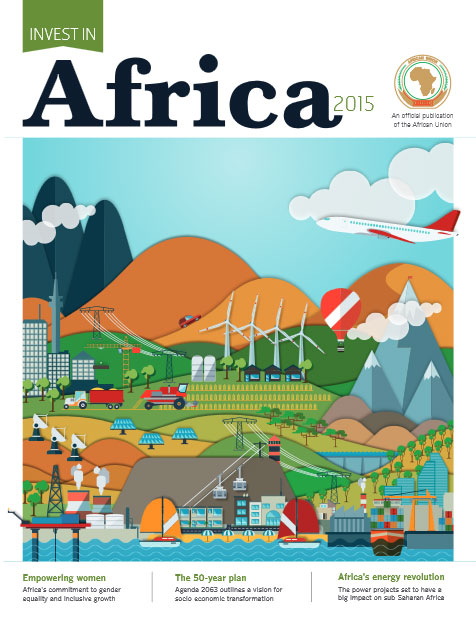Private Sector
"Now we have to reach the many African women and men who still struggle with poverty, unemployment and instability. We can address these challenges by doing more to tap the transformational power of the private sector, trade and investment. Businesses, large and small, can help promote access to food, energy and essential services and provide decent jobs."
-- UN Secretary-General Ban Ki-moon, during TICAD-V, Yokohama (Japan), 1 - 2 June 2013
The Office of the Special Adviser on Africa (OSAA) seeks to encourage the engagement of the domestic private sector in Africa in inclusive growth and development, as a key element for the successful implementation of African transformative agenda, notable the New Partnership for Africa’s Development (NEPAD) which has now been subsumed as an integral part of Africa’s Agenda 2063. OSAA’s engagement with the private sector reflects the recognition that the private sector has a vital role to play in the successful implementation of Africa’s development.
A Driver of Inclusive Growth and Development
The private sector is an important driver for growth and development, and vibrant domestic private sector promises to be a virtuous link in the cycle of improving the competitiveness of African economies, signalling the existence of an enabling environment for business, and attracting foreign investment, which in turn strengthens international competitiveness of African economies.
In the NEPAD, the recently adopted African Union's Agenda 2063, and the Common African Position on the post-2015 development agenda, African leaders have underscored the key role of the private sector for Africa’s sustainable development and structural transformation. In this regard, they have stressed the importance to develop the private sector, strengthen the productive capacity of small scale enterprises, improve the business and investment climate, and promote public private partnerships.
The participation and leadership of the private sector and implementation of socially responsive and accountable business practices has also been stressed.
OSAA’s Efforts
The Office has published a number of reports relating to increasing the participation of the private sector in the NEPAD programmes and priorities. Further, OSAA has galvanized and forged innovative partnerships with the private sector and philanthropic institutions in its advocacy efforts for Africa’s peace and development issues, including for resources mobilization for Africa’s sustainable and inclusive development. In this context, OSAA is directly engaging the private sector in its advocacy events and through the United Nations Monitoring Mechanism of Commitments made toward Africa’s development.
Furthermore, OSAA has been raising awareness about investment opportunities in Africa through successful partnerships with various bodies such as Africa Investor, the Global Partnerships Forum, the NEPAD Business Foundation, and a large coalition of African and non-African businesses. OSAA’s efforts through high-level investment dialogues and the promotion of public-private partnerships engagement aims at changing investors’ perception about the Continent.
Private Sector Investment Conference for the Great Lakes Region (24 - 25 February 2016)

The Private Sector Investment Conference (PSIC) for the Great Lakes Region seeks to strengthen economic cooperation, expand trade opportunities as well as stimulate job creation to bring about long-term stability and peace in the region. Register today!
"This year has been declared the Year of Women’s Empowerment and Development towards Africa’s Agenda 2063. Women represent more than 50 per cent of Africa’s population and we believe that empowering a woman socio-economically and politically empowers the whole society."
-- Dr. Zuma)
Did you know?
- To close the infrastructure gap with the rest of the world and meet its Millennium Development Goals, the AfDB estimates that Africa needs to invest $93 billion per year over the next decade in infrastructure, doubling existing levels.
- In 2012, three of the world’s 10 fastest-growing bourses were in Africa. In 2013, no fewer than 10 of Africa’s major indices have enjoyed double-digit growth.
Source: Invest in Africa 2014, African Union



